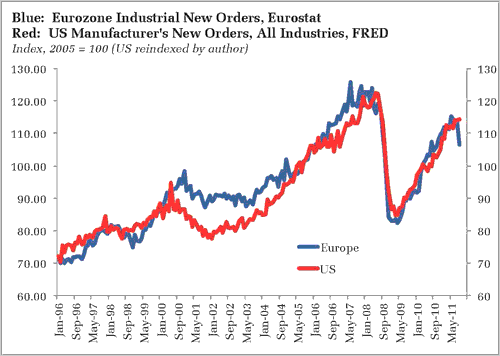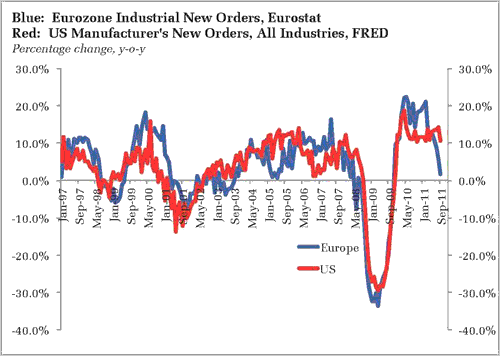The OECD cut forecasts for 2012. Via the Wall Street Journal:
The Paris-based think tank cut its forecasts among its 34 members to 1.9% this year and 1.6% in 2012, from 2.3% and 2.8% in May. The OECD said it expects the euro zone’s economy to contract by 1% at an annualized rate in the last quarter of this year and by 0.4% in the first three months of 2012.
For 2012, the OECD said the 17-country bloc’s economy will only grow by 0.2%.
This is far too optimistic. The European economy is about to fall over a cliff, and last week’s Eurostat report on new industrial orders reveals that manufacturing is leading the way. New orders fell by a whopping 6.4%, a move that hearkens back to the darkest days of 2008. Will the US be able to resist the pull of the European downturn? These charts don’t offer much optimism:


Not a perfect match, but enough to suggest the idea of substantial decoupling looks like more myth than reality, especially in the face of a severe recession. Could this be why US Treasury yields held steady today even as equities roared forward?
Bottom Line: Don’t take US resilience for granted this time around – Europe is getting ugly, and it is far too late to prevent severe recession. The best policymakers can hope for at this point is too avoid a depression.



Leave a Reply